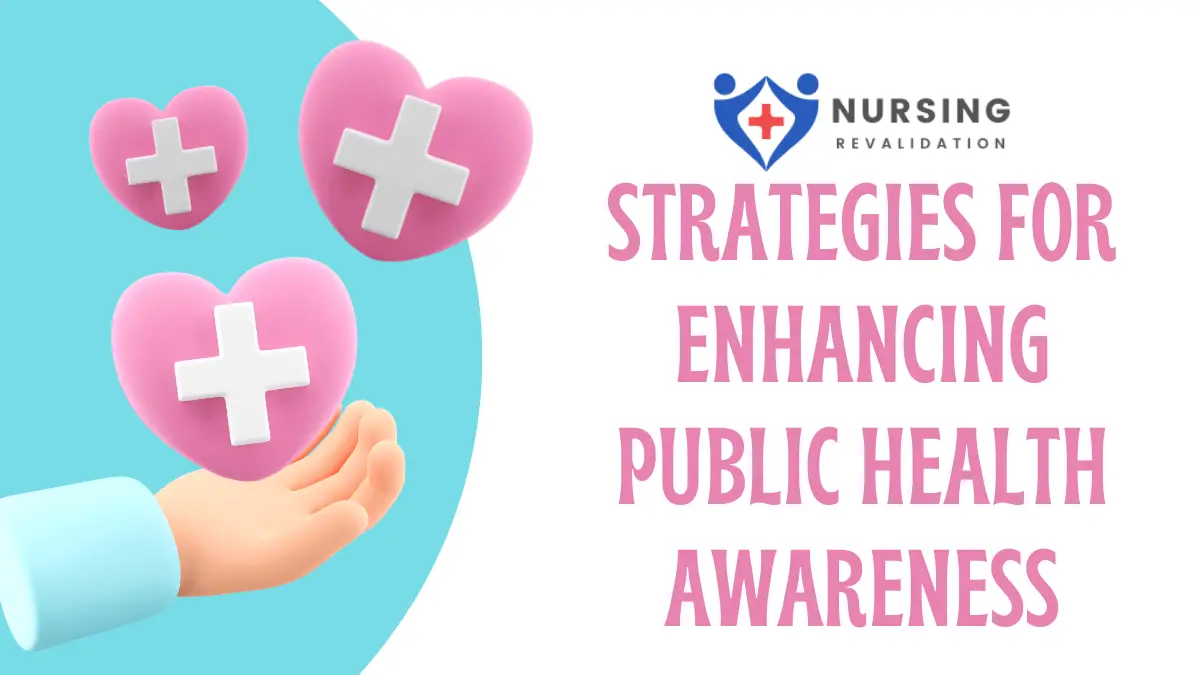In today’s fast-paced world, where information is abundant but often overwhelming, enhancing public health awareness has become paramount. From combating infectious diseases to promoting healthy lifestyles, raising awareness plays a pivotal role in safeguarding community well-being. In this comprehensive guide, we delve into effective strategies aimed at bolstering public health awareness, ensuring communities are equipped with the knowledge and resources needed to make informed decisions about their health.
Understanding Public Health Awareness
Before delving into strategies, it’s essential to grasp the concept of public health awareness. At its core, public health awareness encompasses disseminating information and education to individuals and communities about prevalent health issues, preventive measures, and available resources. It aims to empower individuals to make healthier choices and adopt behaviors conducive to overall well-being.
The Role of Education and Communication
Education Campaigns:
Launching targeted education campaigns is a cornerstone of public health awareness efforts. These campaigns utilize various channels such as social media, television, and community events to disseminate crucial health information. By tailoring messages to specific demographics and addressing prevalent misconceptions, these campaigns effectively engage and educate the public.
Health Literacy Programs:
Improving health literacy is vital for fostering informed decision-making. Health literacy programs equip individuals with the skills to understand health information, navigate healthcare systems, and advocate for their well-being. By enhancing literacy levels, communities are empowered to take proactive measures towards better health outcomes.
Table: Impact of Public Health Awareness Strategies
| Strategy | Key Metrics | Impact |
|---|---|---|
| Education Campaigns | Reach, Engagement, Behavior Change | Increased awareness, Behavior modification |
| Social Media Engagement | Follower Growth, Engagement Rate | Amplified message, Community interaction |
| Health Literacy Programs | Literacy Levels, Health-Seeking Behavior | Empowered individuals, Improved health outcomes |
| Community Workshops | Attendance, Participant Feedback | Direct engagement, Trust-building |
| Mobile Health Applications | Downloads, User Retention | Access to resources, Behavior tracking |
Utilizing Technology and Digital Platforms
Social Media Engagement:
Social media platforms serve as powerful tools for reaching diverse audiences and disseminating health-related information. Leveraging hashtags, infographics, and interactive content, organizations can amplify their message and foster meaningful engagement with the public. Furthermore, utilizing influencers and partnering with reputable health organizations can enhance credibility and reach.
Mobile Health Applications:
With the widespread use of smartphones, mobile health applications have emerged as valuable resources for promoting health awareness. These apps offer features such as symptom tracking, medication reminders, and access to reliable health information. By integrating gamification and personalized content, they incentivize users to adopt healthier habits and stay informed about their health.
Community Engagement and Collaboration
Partnerships with Local Organizations:
Collaborating with local community organizations, such as schools, religious institutions, and non-profits, can amplify the reach of public health initiatives. By leveraging existing networks and resources, these partnerships facilitate targeted outreach efforts and promote grassroots engagement. Additionally, involving community members in the planning and implementation process fosters a sense of ownership and sustainability.
Community Workshops and Events:
Hosting workshops, seminars, and health fairs provides opportunities for direct interaction with the community. These events offer platforms for education, screenings, and resource dissemination, fostering dialogue and building trust. By addressing community-specific needs and preferences, such events promote inclusivity and relevance.
Measuring Impact and Effectiveness
Data Analysis and Metrics:
Utilizing data analytics and metrics is crucial for evaluating the impact and effectiveness of public health awareness initiatives. Tracking indicators such as reach, engagement, and behavior change allows organizations to assess the efficacy of their strategies and make informed adjustments. Furthermore, conducting surveys and focus groups provides valuable insights into public perceptions and knowledge gaps.
Continuous Improvement:
Continuous improvement is integral to the success of public health awareness efforts. By soliciting feedback from stakeholders and monitoring emerging trends, organizations can refine their strategies and adapt to evolving needs. Embracing innovation and incorporating best practices ensures sustained relevance and effectiveness in promoting health awareness.
Conclusion
Enhancing public health awareness is a multifaceted endeavor that requires strategic planning, collaboration, and innovation. By employing targeted education campaigns, leveraging technology, and fostering community engagement, organizations can empower individuals and communities to make informed decisions about their health. Furthermore, measuring impact and embracing continuous improvement ensures the effectiveness and sustainability of these efforts. Together, we can build healthier and more resilient communities through enhanced public health awareness.


